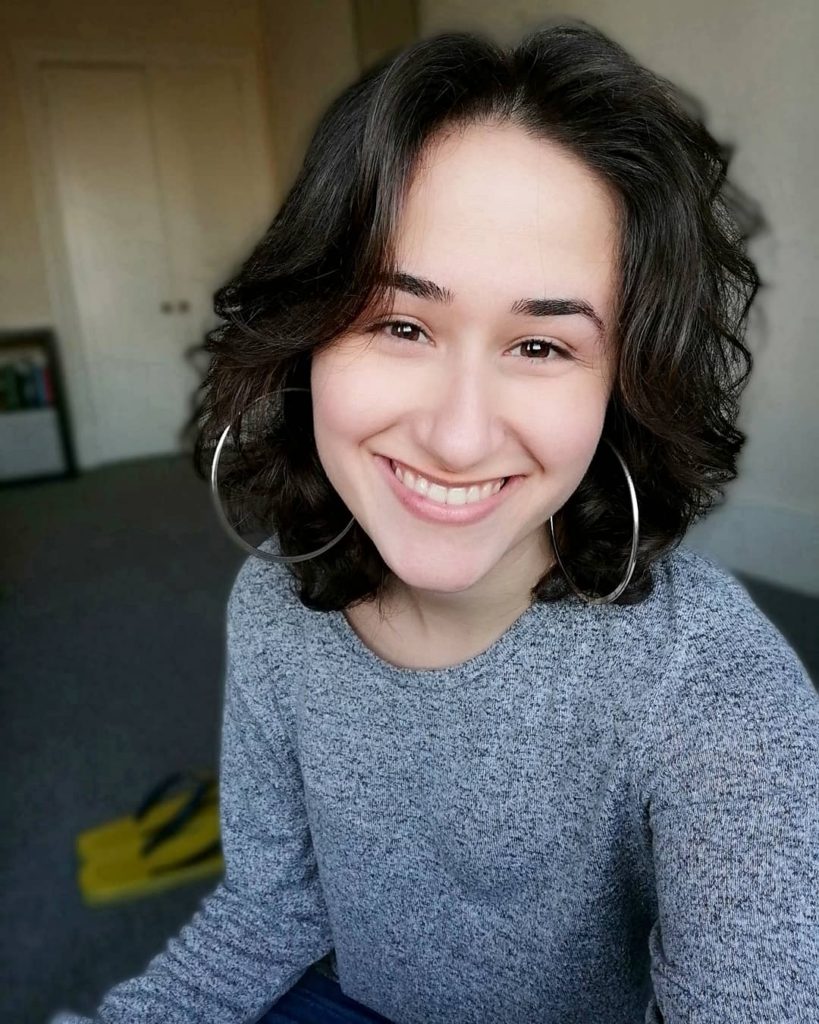We are happy to publish our first collaboration. Isadora Bueno Bastos has delivered this text as a talk for the University of Glasgow TEDx “Taster Talks” event in November 2019 and again for the UoG TEDx Launch Party event in February 2020.
by Isadora Bueno
I am Isadora and I am Brazilian, which means I am Latina.
So, what is a Latina? In the Merriam-Webster Dictionary, it is a woman or a girl of Latin American origin. According to data from the World Bank collected in 2018, the number of females in Latin America and the Caribbean was 325, 640, 285. That is restricted to South America and the Caribbean Islands, but many other countries have women who identify as Latinas such as Spain and Mexico. And if we were to consider them, that number would rise dramatically.
When I say Latina, it is possible that many of you have something like Gloria from Modern Family come to mind, so let’s talk about representations of Latinas because there are clearly many of us! We have big figures like Jennifer Lopez, Salma Hayek, Sofía Vergara and Penélope Cruz. These women are professionals and businesswomen from different origins, but they seem to play the same role in different movies and shows. They are hypersexualized, wearing extravagant and sexy clothing, have heavy accents and/or break into Spanish out of nowhere, are loud and exaggerated.


Take Sofía Vergara in Modern Family, a young mother and house-wife, married to a much older husband, loud, excessively worried, often screaming in Spanish and wearing clothes that bring attention to her body type. Are there Latinas like this? Probably, yes. Do I only want to be represented like this? No.
There are also movies where these actresses play a more passive role in relation to the men they love/ who love them, such as Spanglish (2004) and Maid in Manhattan (2002), where they are also in an inferior position to the men they fall for and prove themselves to have some kind of “Latina spice” and now the Latina isn’t just a pretty face, but also has values (which always comes as a surprise). How does this type of representation affect us outside of the screen?


I am a Latina, born and raised, but at sixteen I moved to Canada and got the chance to live there for about two years, at nineteen I moved to Germany and stayed there for about two years as well, and now I am in Scotland. I moved back to Brazil in between these travels, and something caught my attention: I am treated differently outside of my country.
When I left Brazil for the first time, my mom told me she was going to give me very important advice, almost an order, that she learned when she backpacked Europe in the early 90s: she told me to say I was Portuguese. I refused. I am not. She said that it was for my own protection, as another little way of preventing, trying to avoid being sexually harassed in any way. I did not understand, back then, but lately, it is becoming clearer why she was so adamant, worried and angry that I said no. You might think “Yes, but that was 20 years ago?!”
In her study A “Imagem” das Mulheres Brasileiras no Exterior: Corpos, Meios de Comunicação e Discursos (The “Image” of Brazilian Women in Foreign Countries: Bodies, Communication and Discourses), published in 2014 and conducted in Europe, Dr. Damiana Ballerini found that Brazilian women are constantly represented as “overly sexualized” and that their gender and nationality are combined to create this image, drawing from their skin colour and the romanticized idea of the “exotic”, meaning we end up being racialized and sexualized.
I always worked in customer-facing roles, and I always worked outside of Brazil, as a bartender, or in retail, receptions, etc. And before I say my nationality, my customers – especially men – are very polite, they tend to be pleasant and ask where I am from, because of my weird accent, both in German and English. I am always honest, but as soon as I say that I am Brazilian, something changes, immediately. I had men and women tell me that they expected me to be darker, to have bigger breasts, curlier hair and a heavier accent. On my first day at work in Scotland, I was being taught how to operate the till and this customer came up and tried to guess my nationality when I said I am Brazilian the conversation automatically changed, he was no longer speaking to me but to my manager, who is a man, about how Latina women were supposed to be “you know!” and started using all of these sexual innuendos. Since then, I had men ask my superiors in front of me, right after I said where I am from, if I had a Latina temper, amongst other things. What makes people believe that they can make assumptions about me based on my nationality? More importantly, what makes them so comfortable to harass me after I say where I am from? Maybe it is because that is all they have ever seen in the media. When it comes to women like me, Latinas, all people have ever seen is a stereotypical character who is constantly sexualized and inferior.
The impact of the media on our opinions has been studied since before the Second World War (Fürsich, Media and the representation of Others, 2010) and academics believe its impacts are profound and translate into our social behaviour.
Beyond just mirroring reality, representations in the media such as in film, television, photography and print journalism create reality and normalise specific world‐views or ideologies. (Fürsich, 2010)
What I am suggesting here is that maybe if Latina women hadn’t always been the sexy maids in movies, maybe if they hadn’t been represented as beautiful, clueless and always ready for sex, but were businesswomen instead, or just villains or simply women in a drama! In short, if we had been represented as white women are, I believe these comments would be way less recurrent. Because we would be seen as people.
The good news is, things have become better, since I was sixteen, since shows like Jane the Virgin (2014 – 2019) and Brooklyn 99 (2013 – present) came out, and showed all types of Latina women, coming together, fighting, enjoying sex or keeping chaste, moms, cops and just women.
The character of Amy Santiago, in Brooklyn 99, was the first character in which I ever saw myself because she is recognized as a Latina, but she doesn’t have to wear tight dresses or be any of the things people wanted from me to recognize me as a Latina.

When we stop representing a group of people in just one way and take interest in their culture, their real lives, we start seeing them as they truly are. Just people. And with different cultures, because Latina is a broad term and we are not all the same, not outside and not on the inside. A better representation would bring us closer because it would treasure our differences and highlight our similarities, it would unite us because there would no longer be such a stereotype that people could rely on to label others. Of course, we can be maids, and sexy and loud, but we can also be doctors, we can be shy and we can be prudes. There are millions of us and one personality type cannot cover all that.
This change has started, and I feel this, at home. I see myself in more characters, I can relate to the women I see, but I am still – very often – enraged, by the discussions about J-lo’s body and the descriptions of Latinas as “feisty”. And I invite you to think of more movies, shows theatre castings where women like me have the freedom to play a different character, and not just the stereotype that has been served us. Don’t you think that maybe, if that was the case, the first image that (possibly) came to your head when I said I am Latina, would be different, would it perhaps be more similar to the image you have of yourself?

Isadora Bueno Bastos is a second-year Theatre Studies and Literature MA student at the University of Glasgow. She left Brazil during her teenage years to study and is now based in Scotland for her higher education. She hopes to work with representation in text and in the performative arts to create opportunities for artists who belong to minority groups like herself.